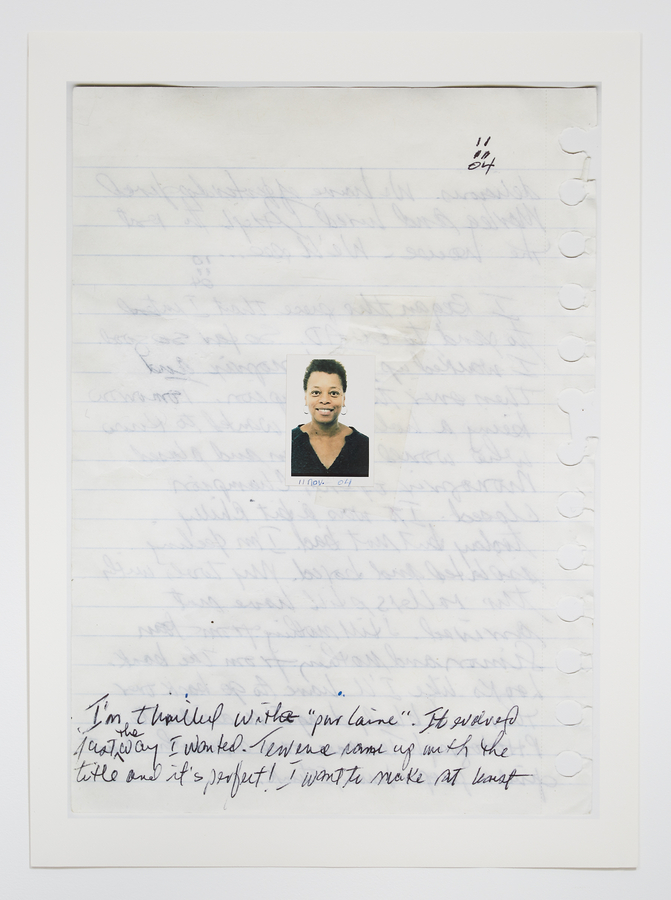June Clark Witness

June Clark: Witness is the first survey in Canada of the Toronto-based artist, who, since the late 1960s, has developed a unique and groundbreaking practice spanning photo-based work, text, collage, installation, and sculptural assemblages. Born in Harlem, New York, Clark immigrated to Canada in 1968 and subsequently made Toronto her home. The questions of identity formation and their connection to our points of origin fuel her practice. In this deeply personal exhibition and outdoor installation, Clark explores how history, memory, and identity—both individual and collective—have established the familial and artistic lineages that shape her work.

The exhibition brings together significant works that stretch from the 1990s to the present, many of them seen here for the first time. Included are Clark’s iconic installations Family Secrets (1992) and Harlem Quilt (1997); the photo-based works 2191 Reprise (1997) and 42 Thursdays in Paris (2004); and several bodies of work comprising reworked found objects: Keepers (2004–23), Perseverance Suite (2021–24), and Homage (2011–ongoing). The artist has also produced a new work especially for this exhibition, titled Treks (2023). In each of these works, Clark adopts a singular approach that pushes the boundaries of traditional medium-based practices, whether through her experimental use of photography or the novel way she works with text and materials.

Presented as a billboard on The Power Plant’s southern façade, Clark’s You can’t repent too soon for you don’t know how soon it will be too late (1994) is a socio-historic document of a place and its people, seen through a distinctly personal lens. The work was made as part of a series of photo-etchings from the same year titled Whispering City, in which Clark brings together snippets of stencilled text with photographs of her early family life in Central Harlem, New York, and in Toronto in the 1970s and 1980s. Employing a wiping technique during the production process, she eloquently illustrates the elusive nature of memory—the way it constantly emerges and recedes. By combining the image with text drawn from familial sayings and other childhood recollections, the artist attempts to “fix” the memory, anchoring her subjective interpretation of the past to another highly personal representation. The work is evidence of Clark’s deep love of and sensitivity toward a community she has continually returned to as a subject in her practice.


As the first significant survey of this artist’s work, Witness brings together a wide range of intimate autobiographical works made over the last three decades that are imbued with social commentary on the politics of race, history, and national identity in North America. Central is the notion of memory and the importance of bearing witness, as well as the idea that the past lingers on through the things we hold dear.

This exhibition is presented in tandem with a solo presentation of the artist’s work at the Art Gallery of Ontario.
Curated by Adelina Vlas & Frances Loeffler
Presented by The Power Plant Contemporary Art Gallery. Billboard presented in partnership with CONTACT